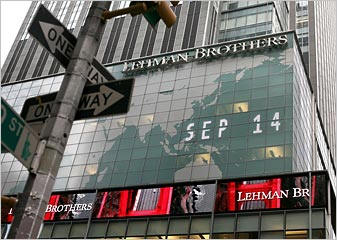|

|
Until this month, few people had ever
heard of, let alone read, a novel by
aspiring Australian writer Harry
Nicolaides entitled Verisimilitude.
According to the author, it was
published three years ago, and in his
own words "pulls away the mask of benign
congeniality that Thailand has disguised
itself with for decades, and reveals a
people who are obsessed with Western
affluence and materialism". The book
sank into immediate obscurity. Only 50
copies were printed, and just seven
sold. Mr Nicolaides, 41, continued to
work in Thailand - as a lecturer in
hospitality and tourism at a university
in the northern town of Chiang Rai. There are plenty of other
foreigners making a living in much the
same way. But one passage in his
forgotten novel has come back to haunt
him. It refers briefly, and
unflatteringly, to the lifestyle of a
crown prince, presumed by the Thai
authorities to be Prince Maha
Vajiralongkorn, heir to the throne. They
have used it as the basis for a charge
of "lese-majeste" against Mr Nicolaides. A warrant for his arrest was issued
in March this year, but - such is the
habitual secrecy that surrounds all
"lese-majeste" cases - he was never
informed of this. He continued to travel in and out of
Thailand on visa runs, until 31 August,
when he was detained as he was about to
board a flight to Australia.
Today he is being held in a remand
centre in Bangkok, awaiting trial.
He was able to raise bail of 500,000
Thai baht ($15,000), but denied it on
the grounds that he might flee the
country. "I feel persecuted, to be honest," he
said. "I don't feel I belong here. I
want to be given a chance to apologise
and explain, but not be in here, and
experience these indignities and
inhumanities," Mr Nicolaides said. He said he was being held in a cell
with 90 other inmates, all of them Thai.
"Someone learned that I am here for
offending the monarch, and I had some
very icy looks from men with tattoos
from neck-to-toe," he said. The
nightmarish situation Mr Nicolaides
finds himself in is a chilling reminder
of the severity of Thailand's "lese-majeste"
law - he faces up to 15 years in jail -
and of the unpredictability of its
enforcement. |
|
|
John Francis Kinsella's novel, Borneo Pulp,
tells the story of how a group of
industrialists planned the destruction
of Borneo's rain forests in their race
for profits. |

|
In the last decades of the
twentieth century the destruction of the
Indonesian rainforest accelerated with the
arrival of large multinational forestry industry
companies. The promoters are Europeans,
Indonesians and Taiwanese, backed by
international banks who vie for a share in the
rich rewards, in total disregard for the
destruction that will be wreaked on the habitat
of the indigenous peoples and the terrible
effect that the mill would have on the natural
environment. John Ennis arrives in Jakarta, on
behalf of the consortium formed to promote the
project, where he discovers an unexpectedly new
world. Assigned to head the development by
Antoine Brodzski the promoter and a Scandinavian
multinational, he is plunged into a conflict of
financial and political interests in Suharto’s
Indonesia, where dollars are more important than
the obliteration of huge swaths of Borneo’s
primary forests and its unique wildlife and
ecosystem. |
|
|
|
|
|
A BEAR MARKET IN SPITE
OF FRIDAY'S GAINS |
 |
|
|
|
LEHMAN
FAILS AIG
NATIONALIZED |

|
In one
of the most
dramatic
days in Wall
Street
history,
Lehman
Brothers
said it
would file
for Chapter
11
bankruptcy,
while
Merrill
Lynch agreed
to sell
itself to
Bank of
America for
about $50
billion. As
the fates of
Lehman and
Merrill hung
in the
balance,
another
crisis
loomed as
the
insurance
giant
American
International
Group
appeared to
teeter.
Staggered by
losses
stemming
from the
credit
crisis,
A.I.G.
sought a $40
billion
lifeline
from the
Federal
Reserve,
without
which the
company may
have only
days to
survive. The
Treasury and
Federal
Reserve have
already
stepped in
on several
occasions to
rescue the
financial
system,
forcing a
shotgun
marriage
between
Bear Stearns
and
JPMorgan
Chase
this year
and
backstopping
$29 billion
worth of
troubled
assets — and
then
agreeing to
bail out
Fannie Mae
and Freddie
Mac only
this month.
For Bank of
America,
which this
year bought
Countrywide
Financial,
the troubled
mortgage
lender, the
purchase of
Merrill puts
it at the
pinnacle of
American
finance,
making it
the biggest
brokerage
house and
consumer
banking
franchise.
Concerning
the Fed,
both Mr.
Paulson and
Mr. Bernanke
were worried
that they
had already
gone much
further than
they had
ever wanted,
first by
underwriting
the takeover
of Bear
Stearns in
March and by
the far
bigger
bailout of
Fannie Mae
and Freddie
Mac. |
|
|
|
|

|
In parallel with the
demise of Lehman
Brothers came
the end of an era for
Merrill Lynch,
the brokerage firm
that brought Wall
Street to Main
Street. Merrill,
which has lost more
than $45 billion on
its mortgage
investments, agreed
to sell itself to
Bank of America
for $50.3 billion in
stock, according to
people briefed on
the negotiations.
“It is an enormous
shock,” said Steve
Fraser, a Wall
Street historian and
author of “Wall
Street: America’s
Dream Palace.”
“Merrill was a kind
of bedrock
institution whose
stability and
longevity was taken
for granted and was
reassuring to
people,” Mr. Fraser
said. “Even in these
very highly erratic
and speculative
marketplaces like
we’ve been living
through, you didn’t
think Merrill would
be vulnerable.” |
|
|

|
ENDANGERED
SPECIES AS ICE
POLAR CAP MELTS
http://www.worldwildlife.org |
|
|
|
|
|
|
AMERICAN
INTERNATIONAL
SAVED BY US
TAXPAYER |
|
|
|
|
|
|
|
|
ISLAMABAD ATTACK |
 |
|
|
|
|
$500 BILLION
BAILOUT FOR WALL STREET |
|
The enormity of the financial
crisis now engulfing Wall Street has led the
Bush administration to abandon its free-market
principles and announce a $700bn bail-out
package to buy up distressed financial assets.
At the same time, to stem growing panic among
individual investors, the Treasury also plans to
offer guarantees for the $3.2 trillion in money
market mutual funds, which many people had
treated as cash. However, the US Treasury’s $700
billion (£380 billion) plan to bail out the
banks could undermine the dollar, economists
warn. The plan, details of which were unveiled
yesterday, will seek congressional approval to
raise the total amount the US government can
borrow from $10.6 trillion to $11.3 trillion. It
also gives Hank Paulson, the US Treasury
secretary, immunity from legal challenge under
the plan. The US Treasury will buy
mortgage-related securities “from any financial
institution having its headquarters in the
United States”, draft legislation said.
Securities issued before September 17 will be
eligible for inclusion. Word of the proposals
created a mood of euphoria in financial markets
on Friday. But analysts warned of the risks. |
|
|